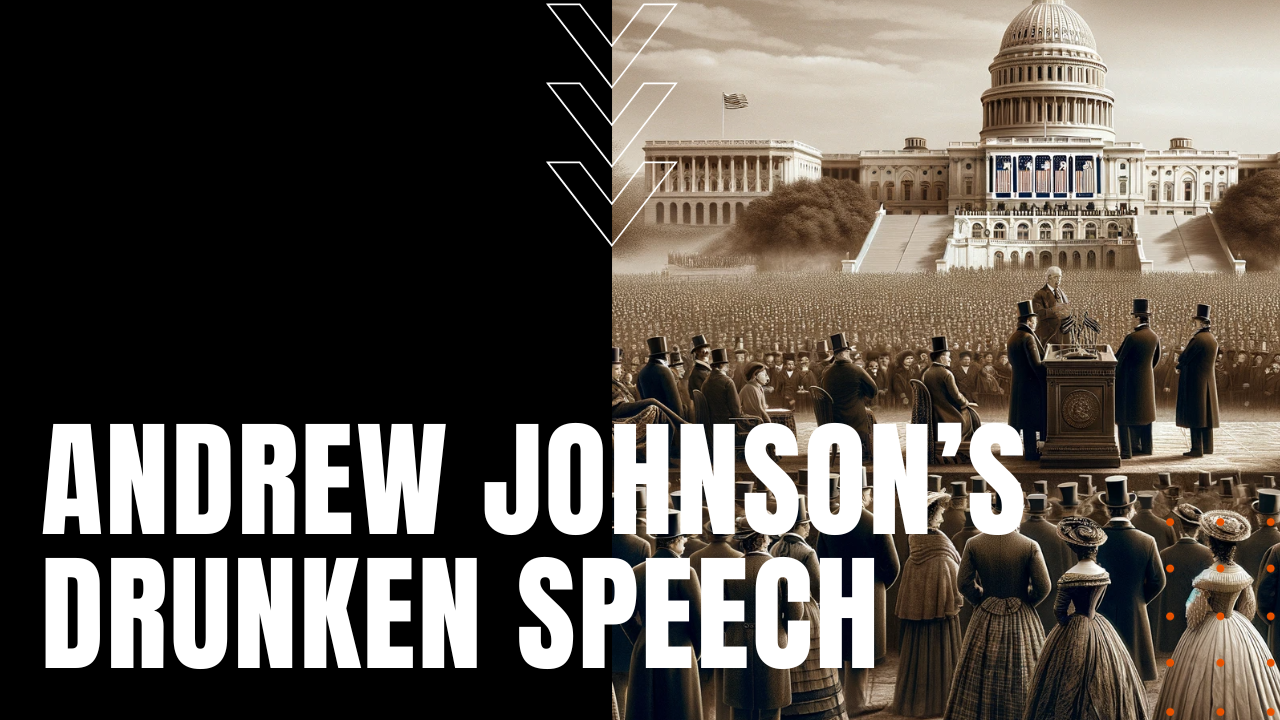A Drunk Future President

After more than four bloody years of Civil War—a harrowing event that ultimately took the lives of some 650,000 to 750,000 Americans—Abraham Lincoln considered his re-election chances to be razor slim at best, at the same time facing heavy pressure from war-weary Republican leaders to drop his insistence on ending slavery as a prerequisite for the South’s surrender and reunification. Instead, he stuck to his moral guns in the name of racial equality for all Americans—a bold move which he felt would cost him the election, yet a morally-grounded decision that let the worry-frazzled president sleep at night.
Hard Night of Drinking
On election day, Lincoln proved victorious over General George B. McClellan, thanks in no small part to a strong showing from the Union Army. On the evening of March the 3rd, 1865, the night before Lincoln’s second inauguration, visitors to Washington picked their way through the mud-clogged streets of the District, dodging rainstorms and mist in their oftentimes futile search for lodging. For his part, soon-to-be Vice President Andrew Johnson drank heavily through the storm, leaving him badly hung over the next morning for his planned inauguration at the U.S. Capitol.
Hair of the Dog
Meeting up in Hannibal Hamlin’s office, Johnson asked the outgoing VP for a slug of booze, and when Hamlin produced a bottle of whiskey, Johnson threw back three straight glasses of throat-burning rye. After walking “arm in arm” into the Senate chamber with Hamlin, senators and spectators alike quickly noted that Johnson was, as one person noted, “in a state of manifest intoxication,”delivering such a disastrous speech that prompted Hamlin to whisper with a nudge from behind, “Johnson, stop!” Journalist Noah Brooks reported that Johnson “kept on, though the President of the United States sat before him patiently waiting for his tirade to be over.”
Hammered
As Johnson took the oath of office, he held up the Bible and called out “I kiss this Book in the face of my nation,” prompting Attorney General James Speed to remark that “All this is in wretched bad taste, the man is certainly deranged.” After Lincoln’s tragic assassination on April 14th, 1865—just five days after the end of the Civil War—Johnson was sworn in as president of the United States, no doubt drinking his way through the weighty job of command-in-chief.
